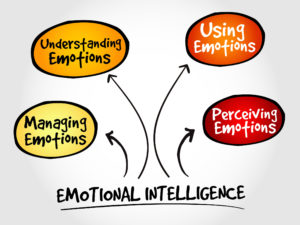Podcast: Play in new window | Download
Subscribe: RSS
[embedyt] https://www.youtube.com/watch?v=eaV8aAFvUnY[/embedyt]
“We change our behavior when the pain of staying the same becomes greater than the pain of changing. Consequences give us the pain that motivates us to change.”
― Henry Cloud
Boundaries are set to create clear separations between yourself and others. They are created so you can honour your needs and self respect. When you set boundaries, you are telling others what you want and what to expect. The best way to set boundaries is to do some self-reflection. Pay attention to how you feel. Do you feel stress? Resentful? Angry? Frustrated? Taken Advantage of? You need to give yourself the permission to take care of you first.
Pay attention to your own thoughts before you take notice of others. Your first step in setting boundaries may mean that you need to shut down your own negative thinking. Are you taking things personally? Do you believe that your circumstance is permanent? If so, you are stuck in a rut. You will not find a way out until you shift your thinking and realize that a persona’s response comes from their own experiences and perception. You need to discover what that is and challenge any assumptions you may be having and get some clarification. There may be a misunderstanding. Life is fluid. Good and bad circumstances are temporary. The way you choose to respond and the choices you make will determine how long you stay in that state. Choose to do nothing and the longer you will be there. Choose to take action and you will have progress.
Identify what drains you. If you are not sure whether you need to set some boundaries, consider the people and places that drain you. The places may be noisy, dirty, or cluttered. The people may be miserable, gossipers, or complainers. They complain about their spouses or partners or they speak poorly about others identifying every flaw they can find. They complain about their boss. You may have increased demands placed on you because you are the expert in a certain area. These people may even be family members that call you to see if you can run errands, after all, if you work at home you must not be doing anything. At some point, you need to stop the madness!
Know you core values. Not only do you make better decisions when you know your core values, you can set boundaries more effectively because you know what you stand for. You know what you are willing to tolerate and what you are not willing to tolerate. Use your core values as your guideposts. If someone violates one of your core values, they need to know that there is a consequence. For example, if someone cheats or steals, they may be fired from a job or have criminal charges placed on them. Your values drive your results.
Remember you cannot change others, you can only change yourself. In Dr. Henry Cloud’s book, Boundaries for Leaders, he talks about how leaders get what they allow. You can choose to respond or reactive to any given circumstance. The one thing you can do to change the way you act toward them is to provide direct honest heart to heart communication. I know some organizations do like to talk about matters of the heart, however, being heart centred is about allowing people to express themselves and have a voice.
Here’s what you can do. If you do not like how someone is treating you, you can use the communication method often taught in emotional intelligence.
When you…
I feel…
What I want…
You start to focus on facts, express how you are feeling, and set expectations for the future. People will start changing their behavior and outcomes when they understand how it impacts others. I have used this method on many occasions and it saves many relationships. People often avoid sharing how it impacts them and what their needs are because they fear how the other person will react. I want to remind you what you think and feel is important. If you do not express yourself, you may become resentful because you feel taken advantage of. Communicate what you want and need. Others will respect you for setting limitations and feel that they have the permission to do the same.
Decide what the consequences are if someone crosses the line. If someone says that they are going to deliver on something and they don’t, there needs to be some consequence. A person’s actions should be stronger than their word to demonstrate how committed they are to your wants and needs. Consequences do not have to be negative. A positive consequence can be holding someone accountable for their actions and demonstrating that you believe in their capacity to change and become a leader. The consequence of not achieving a goal can be a positive consequence that also motivates a person to put in the work required to get there.
“When we fail to set boundaries and hold people accountable, we feel used and mistreated. This is why we sometimes attack who they are, which is far more hurtful than addressing a behavior or a choice.”
― Brené Brown, The Gifts of Imperfection: Let Go of Who You Think You’re Supposed to Be and Embrace Who You Are
Setting boundaries takes courage and practice. It gets easier over time. When people set boundaries, it creates a safe environment in which people feel comfortable to share and express themselves. By clearing communicating and setting boundaries, you will be able to be present and calm in the moment. Your quality of life also improves. You sleep better and face fewer distractions and you can separate events or circumstances from overflowing into what you are doing.
It is not “if” someone will cross your boundaries, it will be, “When?” How will you decide handle it?
We would love to have you subscribe to the Success Secrets newsletter on my website at www.debrakasowski.com where you’re going to get us free MP3 download 10 Surefire Strategies to Power Up Your Productivity and Performance. I would love to hear about this podcast has impacted your life. E-mail me at Debra@DebraKasowski.com. Thank you for listening to The Millionaire Woman Show where we talk about leadership, business, and human potential to help you live rich from the inside out. Subscribe to The Millionaire Woman Show. Share it with Your Friends. Give us a 5-star rating!
DEBRA KASOWSKI, BScN CEC is an award-winning best-selling author, transformational speaker, blogger, and Certified Executive Coach. She has a heart of a teacher and is certified in Appreciative Inquiry and Emotional Intelligence. Her writing has been published in a variety of print and online magazines. Debra Kasowski International helps executives, entrepreneurs, and organizations boost their productivity, performance, and profits. It all starts with people and passion. Sign up the Success Secrets Newsletter and get your free mp3 download today! www.debrakasowski.com
 Emotional triggers are thoughts, feelings, or events that trigger an emotional response. These emotional triggers can be positive or negative. It all depends on how you choose to react or respond. Your responses may have been negative at some point but along the way you learned how to deal with these emotions constructively and turn them into a positive lesson or just simply let it go. Ultimately, it is a matter of choice. We’ve all been triggered at some point in our lives. You may have lost your cool at a board meeting or you may have been elated for being acknowledged for an award.
Emotional triggers are thoughts, feelings, or events that trigger an emotional response. These emotional triggers can be positive or negative. It all depends on how you choose to react or respond. Your responses may have been negative at some point but along the way you learned how to deal with these emotions constructively and turn them into a positive lesson or just simply let it go. Ultimately, it is a matter of choice. We’ve all been triggered at some point in our lives. You may have lost your cool at a board meeting or you may have been elated for being acknowledged for an award. environment may be an emotional trigger for you: clutter, noise, or conflict. You can try and run and hide and avoid situations that trigger your emotions or you can deal with it head on. Positive emotions do not appear to cause much of a problem because people are happy and joyful and act in a positive way. The negative emotions can hinder communication and potentially harm relationships if not used constructively. You can use your emotional triggers to your advantage and express your emotions in a positive way.
environment may be an emotional trigger for you: clutter, noise, or conflict. You can try and run and hide and avoid situations that trigger your emotions or you can deal with it head on. Positive emotions do not appear to cause much of a problem because people are happy and joyful and act in a positive way. The negative emotions can hinder communication and potentially harm relationships if not used constructively. You can use your emotional triggers to your advantage and express your emotions in a positive way.